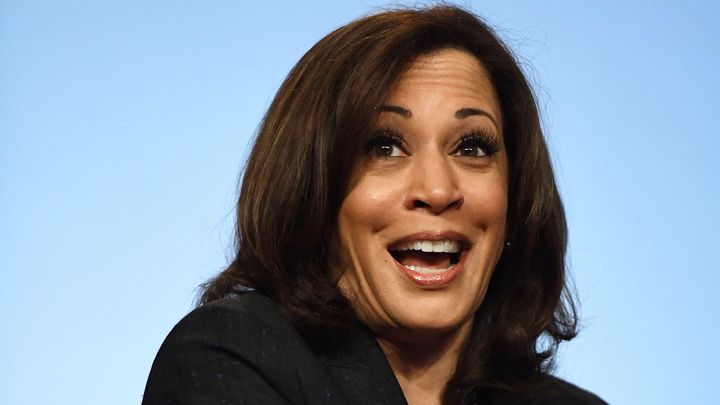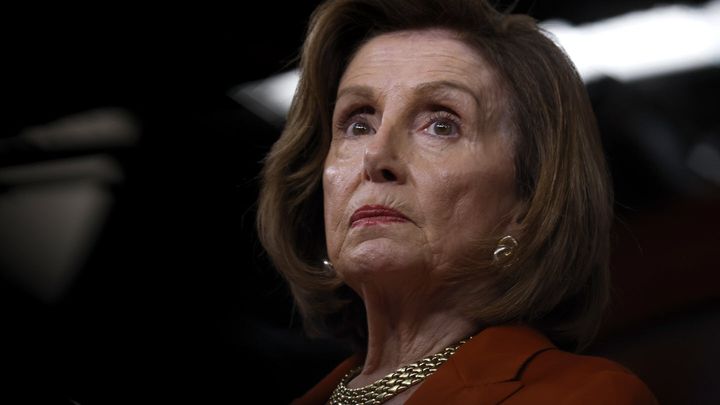California senator and 2020 Democratic presidential candidate Kamala Harris has been busy collecting checks from Hollywood elites. In February, she attended a fundraiser in Los Angeles hosted by the chairman of the parent company of Universal Pictures. In March, she headlined a $2,800-per-ticket fundraiser at the Pacific Palisades home of J.J. Abrams and his wife, producer Katie McGrath. And earlier this month, she attended a fundraiser held by writer-producer-director Jenni Konner and writer-director Richard Shepard, and another one held by producer and president of MGM Motion Picture Group Jonathan Glickman.
Harris’ fundraising from Hollywood interests is nothing new. According to data collected by the National Institute on Money in Politics, Harris raised more than $1.1 million from PACs and individuals in the television and movie production and distribution industry from 2009-16 for her campaigns for California Attorney General and U.S. senator. During her Senate campaign and her time in office, according to data from the Center for Responsive Politics, Harris’ top five donors have included WarnerMedia Group, 21st Century Fox, and Venable LLP, a lobbying firm that works for Time Warner.
Harris’ strong support from Hollywood follows her history of working to help the entertainment industry in its fight against websites like YouTube that allow users to upload and link to content, including content that could potentially infringe on copyrights held by big media companies.
Kamala Harris’ Senate office did not respond to a request for comment for this article.
In 2013, as California’s Attorney General, Harris worked behind the scenes with the Motion Picture Association of America (MPAA) and the Recording Industry Association of America (RIAA) to help them pressure Google as part of the industry’s anti-piracy initiative. In one-on-one meetings with lawyers for the trade groups’ member companies and MPAA chief lobbyist and former U.S. senator Chris Dodd, Harris “pledged to help [the entertainment industry] make a substantial difference protecting motion pictures, sound recordings and other works from infringement on-line,” according to emails that were stolen from Sony Pictures and published by Wikileaks.
Harris then met with a delegation from the MPAA and RIAA to develop plans on how she could take their case directly to Google. “The purpose is to come to agreement on a plan for [Harris] to reach out to senior Google executives to lead a meeting with an MPAA/RIAA delegation to secure commitments for meaningful changes to ‘search’ that would have a material impact on the unauthorized distribution of motion pictures and sound recordings,” one email reads. Harris also attended meetings with representatives for the film industry and the general counsel of Amazon.
It’s unclear if the meetings brokered and attended by Harris when she was attorney general ultimately helped Hollywood make any gains in its campaign against tech companies and copyright infringement, but shortly after Harris joined the Senate in 2017 she was able to deliver the industry a major victory.
Brokering a SESTA Deal
Harris played a key role in advancing the Stop Enabling Sex Traffickers Act (SESTA), a Hollywood–backed bill poked a hole in Section 230 of the Communications Decency Act. Section 230 is a safe harbor provision that shields tech companies from being held liable for content that is posted on their platforms by their users. It is considered a pillar of the open internet, allowing the social web to flourish and making it possible for people to connect and exchange information in unprecedented ways.
SESTA’s supporters say the bill was designed to fight sex trafficking, but instead of going after sex traffickers the bill targets websites that appear to allow people to post sex work ads. Internet freedom advocates and many in the tech industry see SESTA as a step towards creating the filtered internet that the MPAA and RIAA have been pushing for for years, including in the Stop Online Piracy Act (SOPA), a Hollywood-backed copyright enforcement bill that was withdrawn over censorship concerns following a massive internet blackout protest in 2012. If social media and search companies are able to filter for third-party content related to sex trafficking, they should be able to filter for content that violates copyrights, the thinking goes.
“It’s easy to see the similarities between what Hollywood has been campaigning for in SESTA and what they’ve been campaigning for in the copyright space, which is ultimately an internet that is less interactive, more one-directional and more filtered,” Elliot Harmon, activism director at the Electronic Frontier Foundation, told Sludge. “That vision of the internet in which there are actually very few spaces where you can interact and upload your own material without some kind of algorithmic filter deciding whether the content you posted is okay or not…that model of the internet is part and parcel with Hollywood’s business model.”
According to reports, Harris led negotiations that resulted in the tech lobby dropping its opposition to the bill, ultimately paving the way for many Democrats, concerned about the tech industry’s position, to co-sponsor and vote in favor of the bill.
“Harris is heavily involved in the negotiations on the bill, her first major foray into Senate dealmaking,” wrote Emily Cadei at the Associated Press in October 2017. “[She] has assumed the role of point person for a handful of Democrats and some of the country’s most powerful tech companies, including Google and Facebook, who worry the bill could undermine internet freedom. A number of those Senate Democrats, including California’s Senior Senator Dianne Feinstein, are waiting to see if Harris can broker a deal before weighing in, several Senate aides say.”
Axios reported at the time that that Harris was the leader of a cadre of Democrats who pushed the tech industry to work out a compromise and wanted to see changes to the bill before they would sign on.
When SESTA was introduced, the Internet Association, a powerful tech industry trade group representing giants like Google, Facebook and Amazon, expressed grave concerns with the measure. The bill “jeopardizes bedrock principles of a free and open internet, with serious economic and speech implications well beyond its intended scope,” it wrote at the time. On Nov. 3, 2017, after some minor legislative changes were proposed by Sen. John Thune (R-S.D.), the Internet Association changed its tune and endorsed the bill. Harris was formally added on a SESTA co-sponsor on Nov. 6, 2017, the next day that the Senate was in session. Fifteen Democratic senators joined Harris in signing on after the Internet Association’s announcement, more than doubling the number of Democratic co-sponsors for the bill.
Despite the Internet Association’s change of heart on SESTA, many internet rights advocates and trade groups representing smaller tech start-ups continued to oppose the bill. According to Harmon, the Internet Association likely folded so easily because the large tech companies they represent would benefit under a system that makes their smaller competitors liable for content that is posted by their users. “These protections including Section 230 and also including the protections for liability under copyright law that were so important to the foundation and development of these companies are now less important to them because they do have the big teams of content reviewers, and they have big teams of lawyers too,” Harmon said. “Their competition doesn’t.”
The Center for Democracy and Technology, an internet freedom nonprofit, wrote that the legal risks created by the bill would result in “broad-based censorship,” adding that “smaller platforms will also face the real risk that a single lawsuit could put them out of business. ”
Websites Shut Down
SESTA was combined with a companion bill from the House, the Fight Online Sex Trafficking Act (FOSTA), and signed into law on April 11, 2018. Shortly after, several websites and services shut down because they could not risk being liable for content posted by their users.
Craigslist shut down its personals section, which people used to arrange dates and “casual encounters,” writing that the bill “subjected websites to civil and criminal liability when third parties (users) misuse online personals unlawfully” adding that “any tool or service can be misused” and that they “can’t take such risk without jeopardizing all [its] other services.”

Pounced.org, a dating website for furries, also shut itself down after the bill passed, saying that although it does not promote prostitution or sex trafficking, it could be liable for content posted by its users. “FOSTA increases our liability significantly and chips away at one of the primary reasons we as a small organization can provide services to the community—the protection that had previously been offered to us by Section 230 of the Communications Decency act,” the company wrote.
Beyond tech companies and users of online personals, the sex worker community was hit hard by SESTA. Websites like Backpage.com and Craigslist’s personals section had provided sex workers with safer alternatives to working the streets to find work. A study from Baylor University professor Scott Cunningham on Craigslist’s personals section, which was shut down in the days after SESTA-FOSTA became law, found that the forum decreased violence against female sex workers by 17.4 percent.
The entertainment industry will undoubtedly continue fighting to reshape the laws governing the internet according to their vision. In 2018, the MPAA reported lobbying the federal government on intellectual property issues more than on anything else, including on matters pertaining to illicit streaming devices, felony streaming, and the role of content and copyright in digital trade. In a July blog post, the MPAA’s Senior Vice President for Federal Advocacy and Regulatory Affairs Neil Fried called for further changes to Section 230, the provision of law that was amended by SESTA-FOSTA, as well as an intellectual property safe harbor provision, Section 512 of the Digital Millennium Copyright Act.
Related:



